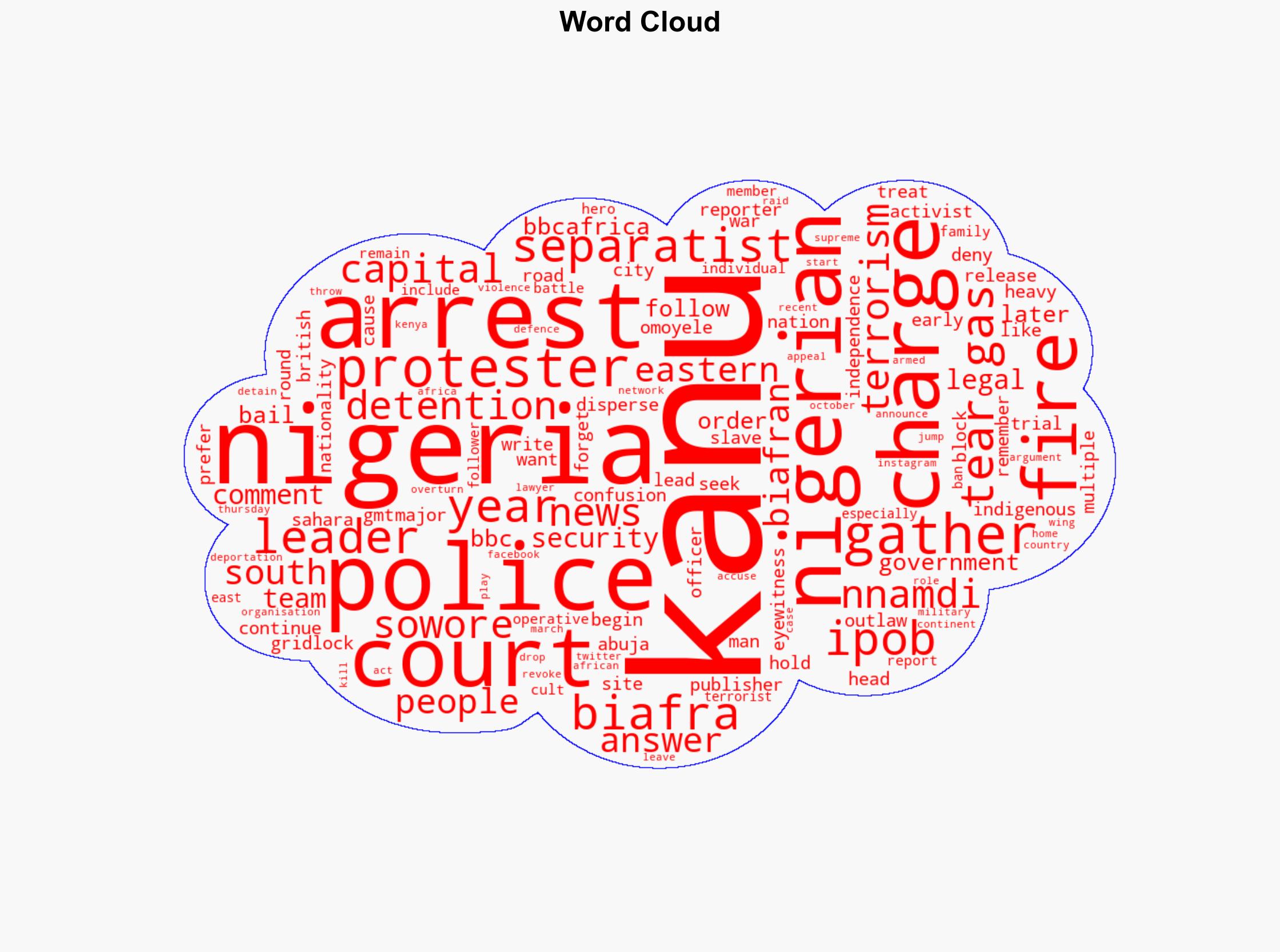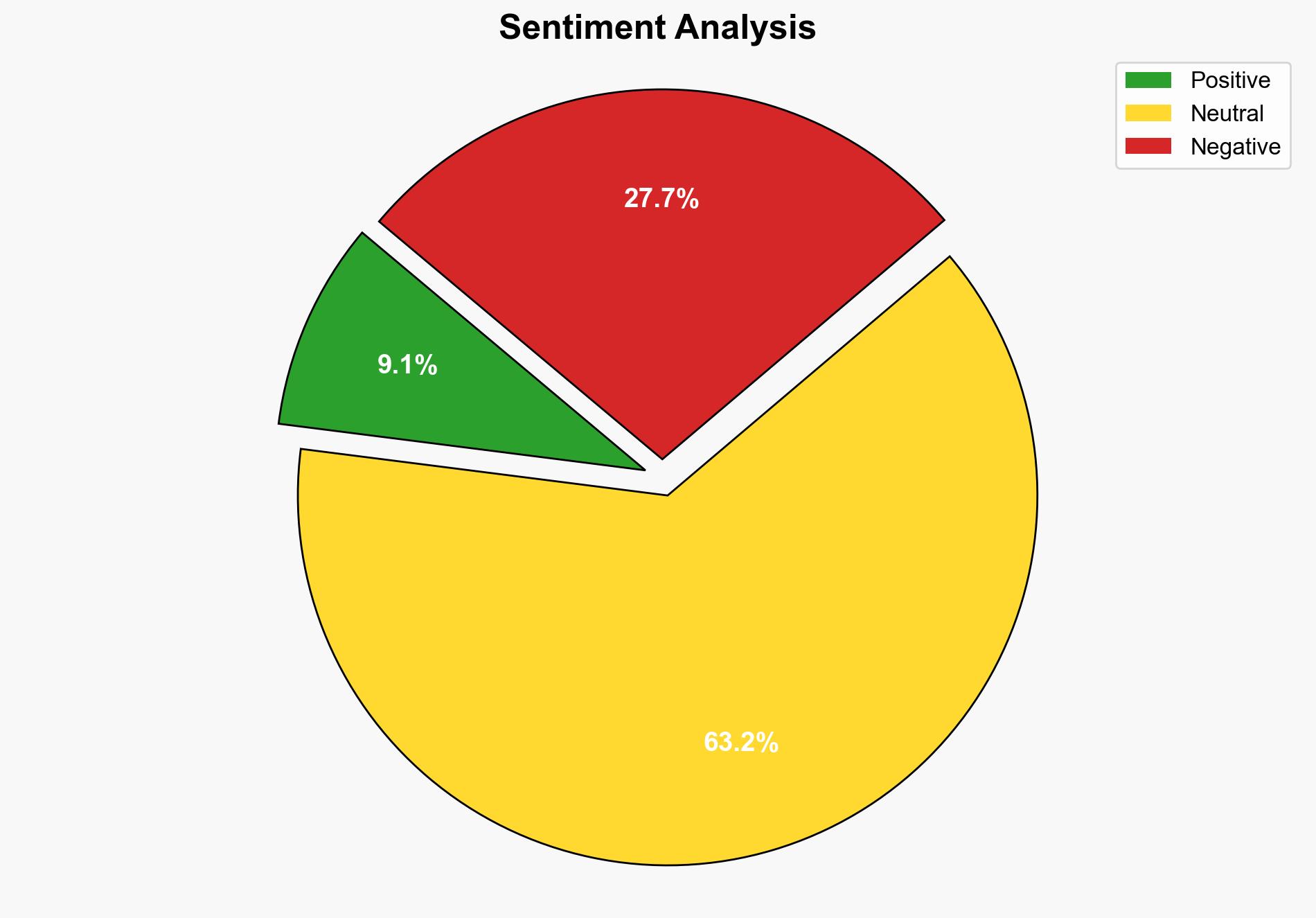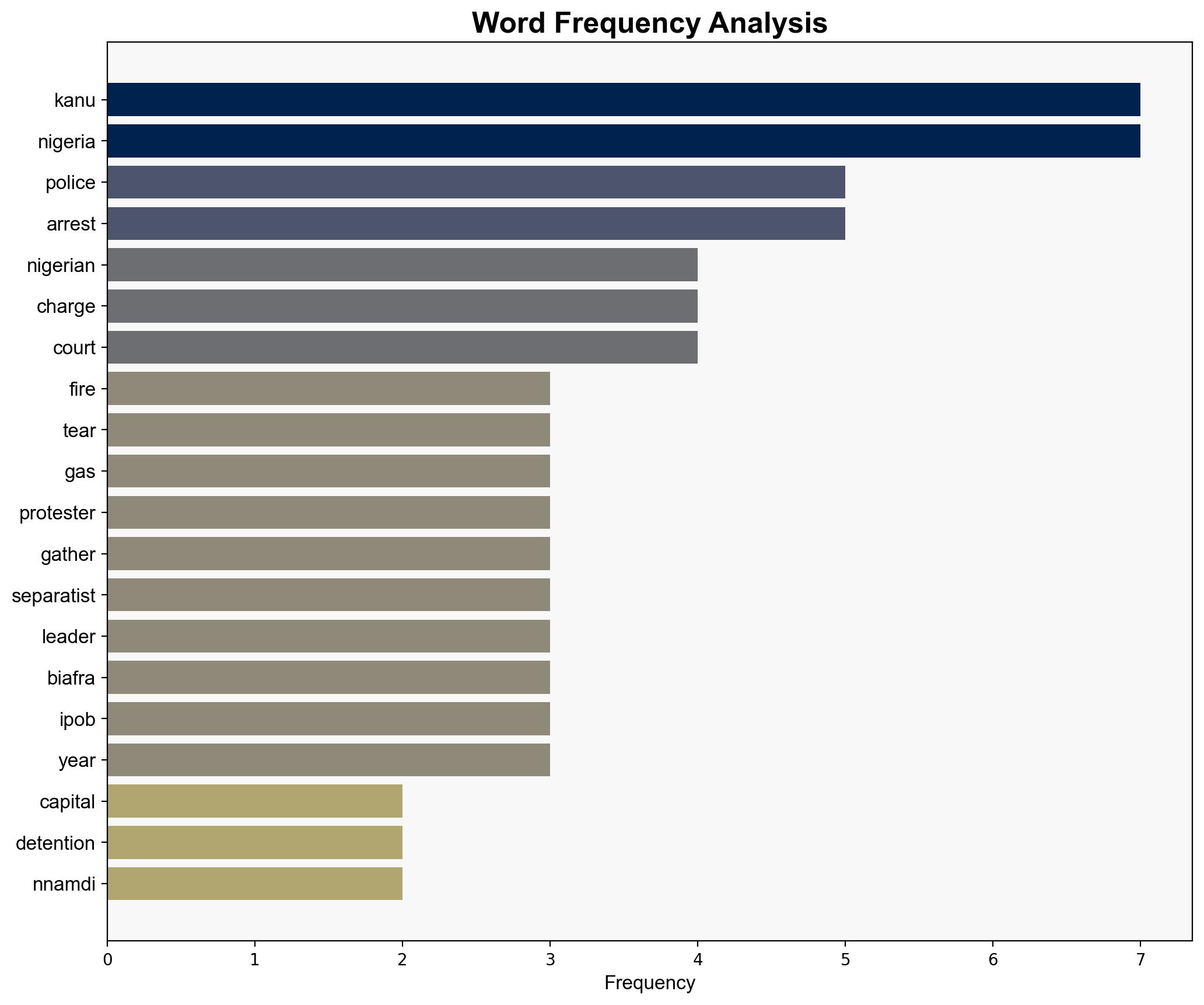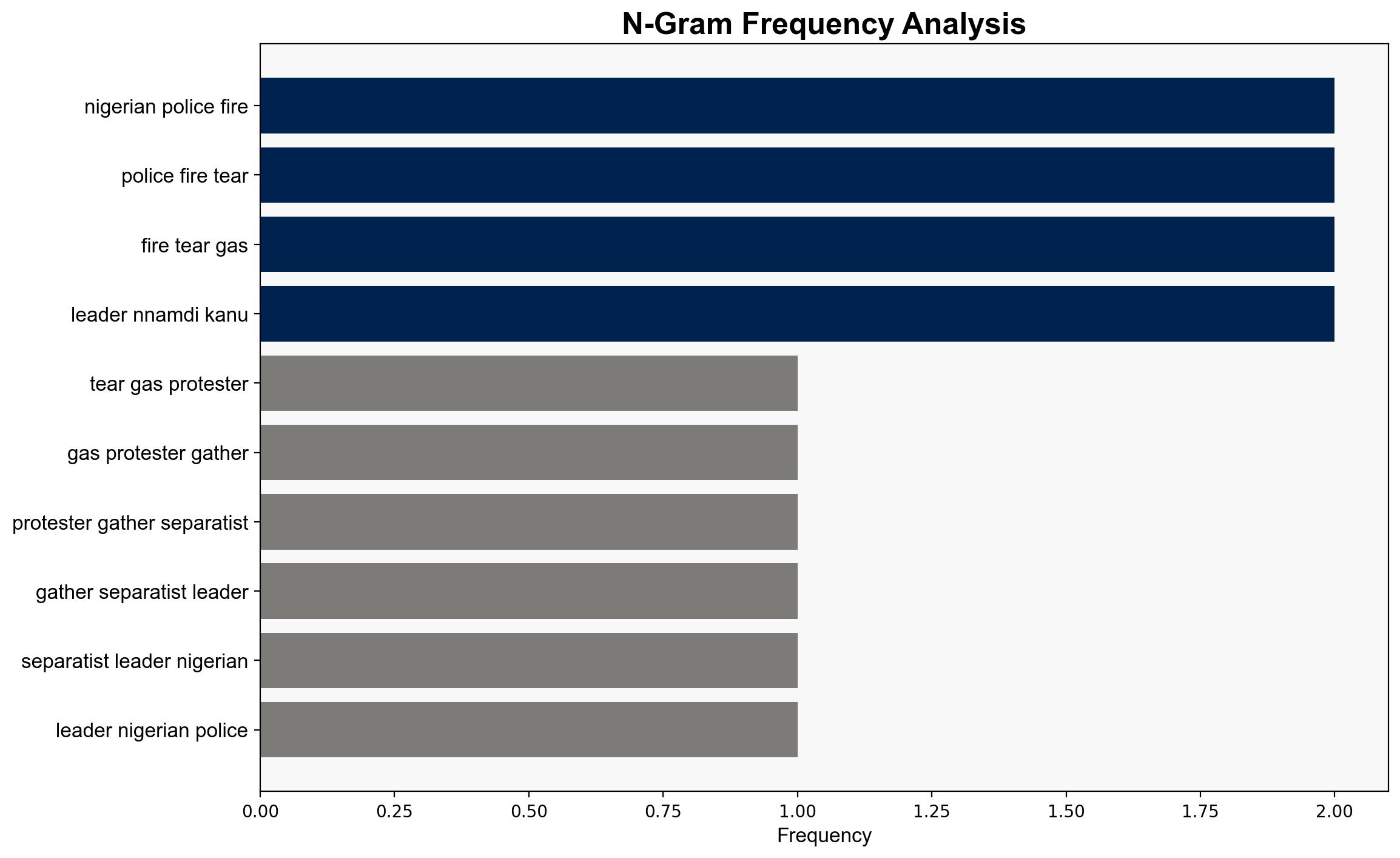Nigerian police fire tear gas as protesters gather over separatist leader – BBC News
Published on: 2025-10-20
Intelligence Report: Nigerian police fire tear gas as protesters gather over separatist leader – BBC News
1. BLUF (Bottom Line Up Front)
The situation involving the detention of Nnamdi Kanu and the subsequent protests in Nigeria presents a complex security challenge. The most supported hypothesis suggests that the Nigerian government’s actions are primarily aimed at maintaining national unity and deterring separatist movements. Confidence in this assessment is moderate due to potential biases and incomplete information. It is recommended to monitor the situation closely and engage in diplomatic efforts to de-escalate tensions while addressing underlying grievances.
2. Competing Hypotheses
1. **Hypothesis A**: The Nigerian government is using force to maintain national unity and prevent the resurgence of separatist movements, particularly in the southeast.
2. **Hypothesis B**: The Nigerian government’s actions are primarily driven by a desire to suppress political dissent and maintain control over opposition figures like Nnamdi Kanu and Omoyele Sowore.
Using the Analysis of Competing Hypotheses (ACH) 2.0, Hypothesis A is better supported by the evidence, as the government’s actions align with historical efforts to maintain territorial integrity. Hypothesis B is plausible but less supported due to the lack of direct evidence linking the actions to broader political suppression beyond the separatist context.
3. Key Assumptions and Red Flags
– **Assumptions**: It is assumed that the Nigerian government’s primary motive is national unity. Another assumption is that the protests are primarily driven by genuine grievances rather than external manipulation.
– **Red Flags**: The lack of transparency regarding the legal proceedings against Nnamdi Kanu and the role of international actors in his arrest and detention. Inconsistent reports on the involvement of security forces in the protests.
4. Implications and Strategic Risks
The continued detention of Nnamdi Kanu and the use of force against protesters could exacerbate regional tensions and lead to increased support for separatist movements. There is a risk of escalating violence, which could destabilize the region and impact Nigeria’s economic and political stability. International criticism could also affect Nigeria’s diplomatic relations.
5. Recommendations and Outlook
- Engage in diplomatic dialogue with Nigerian authorities to encourage transparency in legal proceedings and address human rights concerns.
- Monitor regional dynamics for signs of increased separatist activity or external interference.
- Scenario Projections:
- Best Case: Peaceful resolution through dialogue and legal reforms addressing grievances.
- Worst Case: Escalation into widespread violence and international condemnation.
- Most Likely: Continued protests with intermittent violence, leading to gradual de-escalation through negotiations.
6. Key Individuals and Entities
– Nnamdi Kanu
– Omoyele Sowore
– Indigenous People of Biafra (IPOB)
– Eastern Security Network
7. Thematic Tags
national security threats, counter-terrorism, regional focus




